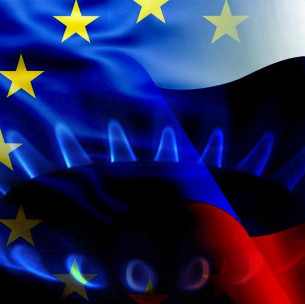By the way, from the list of about 30 parties nominating their candidates, only two parties have real chances: Democratic Party of former field commander Hashim Tachi (with 35% support he will become the Premier) and Democratic Union of President Fatmir Sejdiu (with 23 per cent). The only difference between them is that the former is ready to declare independence already before the end of November, and the latter is ready to wait for two weeks more.
There is another shade - for the first time after deportation of the Serbs in 1999 less than a half of electors (about 45 %) took part in the elections this time, while the elections were completely ignored by the non-Albanians (less than 10% of the 2-million population) – no need to waste time when everything is clear already.
The consequences of Kosovo sovereignization would be not less ambiguous. The West believes that the sooner the Kosovars start ruling themselves, the more the architects of independent Kosovo may save. It means that mid-next year the current UN Mission will transfer its authorities to the OSCE observers who will have less “powers” and therefore will be less in strength.
In the political context, UN Resolution #1244 that guaranteed the Serbian sovereignty in the territory, loses its meaning for Belgrade (“due to the extraordinary circumstances”). To sugar the pill for Belgrade, the formal supervision over the Kosovars is declared to be maintained.
But an immediate batch of Kosovo problems resides already here. Revocation of the resolution confirming the state integrity devaluates similar documents because so far the international law is based of the precedent - what is permitted to somebody, is permitted to everybody. Therefore, Belgrade will be entitled to lay a claim to the Republic of Serbska in Bosnia. Moreover, appearance on the map of Europe of the second Albanian state (besides the ancestral home) will inevitably provoke enticement to create Great Albania at least based on the compatriots in Macedonia (already 25% of its population). The History knows well enough the traditions of tolerance in the Balkans.
The immediate batch is followed by a continental batch of problems. As minimum the Spanish Basques and Belgium Flemings will also have the right to refer to “the extraordinary nature” of their situation. Their example will be followed by other non-title nations in the countries of Western and Eastern Europe. Because the criteria of “the extraordinariness” are politically sensitive. Thus, Kurds and Turks in Germany, not to mention French Algerians, are no longer legally different from Kosovars.
Moreover, Algeria by the way was not a colony but a part of the French Republic. That means that the Algerians are formally not aliens but the former “native French”. In this case, why are “two Frances” worse than “two Albanias”? By the way, the Germans and Spaniards (and the Frenchmen to a less degree) do not feel enthusiasm concerning the independence of Kosovo but should obey the command discipline. The main supporters of the Kosovo’s “extraordinariness” are the Americans. May be, they have no reason to take care of the European stability, do they?
The global circle of the post-Kosovo circumstances falls for us into two segments of “different colors”. Being also an ethnically sensitive country, we of course are interested in the priority of the right to defend own integrity versus the right to self-determination. In this sense, supporting Belgrade we take care of ourselves.
Being a country that has common boundaries with Southern Ossetia and Abkhazia, and the compatriots in the majority of neighboring countries (not only in Transdniestria) we also take into account “the legal innovations”. Alongside with other participants of the international legal relations, we surely will adapt these innovations to our interests. But unlike the West the post-Kosovo consequences seem to us rather dramatic.
On the other hand, both we, and Belgrade are in position to counter the sovereignization of separatists with only invitation to think it over. We had an experience of Hasavyurt delay in the Chechen independence, and abandoned it after three years. Therefore, frankly speaking the choice in the Kosovo case is not between the good and evil but between the drama and tragedy that is almost the same. To avoid both, it is necessary for the beginning to declare a moratorium on the territorial-legal innovations because the principle of domino is triggered by the physical laws but not responsive to the political expediency.
We cannot escape from the development of “an intrastate divorce code”. At that, both “the plaintiff” and “the defendant” are entitled to charge an internationally fair price. In so doing, it is important that all proposed “price lists” are based on common understanding that the war moreover the terror are an exclusive form of fight. Already today, it is urgent at least to explicitly declare international guarantees for autonomously residing national minorities. If such guarantees had been effective, might the situation have not escalated to the events of 1999? Might the Kosovars and Serbs in Kosovo have considered each other compatriots? As a matter of fact, the largest Matreshka contains 250 younger sisters that is almost equal to the number of UN members states.
In case of Kosovo, a logic of irresponsible politicians prevails – to frighten, to promise, to cut off, and as for consequences let them be settled by somebody else. Or may be, is there nothing astonishing in the war itself as before?









